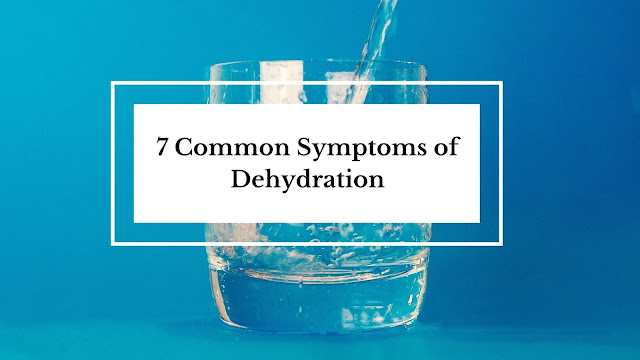Did you know that roughly 70% of your
body is made up of water? Water is essential for human survival and not
drinking enough water can have some serious consequences. A person can live
without food for about a month but only one week without water. We lose water
every day through breathing, urine, stool, and evaporation from the skin. These
losses must be replaced every day for the body to function normally.
Recommended daily water intake
according to The Institute of Medicine for men is
roughly about 13 cups (3 litres) of total beverages a day. The recommended
daily intake for women is about 9 cups (2.2 litres)
of total beverages a day.
These are some of the symptoms you may notice
If you are not consuming enough water:
1. Thirst: Thirst is a
way of your body telling you to drink water however, it is not always a reliable early indicator of the body's need for water. You will usually feel
thirsty because you're not drinking the amount of fluid your body needs.
This may be because you've been sweating heavily or you've lost fluid.
2. Fatigue: Fatigue is one of the first
symptoms of dehydration. A study from Tuft’s University found that mild
dehydration of about 1 to 2 per cent loss of body weight as water can impair
thinking.
Y Your body cells need adequate water to balance the fluids and
electrolytes in the body. When you are not adequately hydrated, the blood
volume decreases and your heart works harder to push oxygen and nutrients
around the body making you feel tired.
Headaches: Dehydration as explained above decreases
blood volume which lowers blood and oxygen flow to the brain. The blood vessels
in the brain dilate leading to swelling which causes a headache.
In addition,
when you are dehydrated, your brain tissue loses water causing your brain to shrink
away from the skull. This triggers the pain receptors and gives you a headache.
4. Dry mouth: Dry mouth is also an early but unreliable sign of
dehydration.
5. Dark urine
and decreased urination: Urine naturally has some yellow pigments called urobilin or
urochrome which gives it the characteristic yellow colour. This colour can
change in intensity from light yellow to very dark because of what we ingest, the chief of which is water. Dark coloured
urine in addition to reduced frequency of urination could mean you need to
drink more water.
6. Dry skin and
wrinkles: Drinking enough water keeps it
moisturised and looking supple. When you are dehydrated, the skin begins to
look dry and you may notice wrinkles. So, before you run to spend a fortune
on skin treatments, try drinking more water.
7.
Constipation: Not drinking
enough water can lead to constipation. The colon draws water from body waste to
make it solid. When there is too little water
available, the stool becomes dry, hard, and difficult to move through the
colon.






